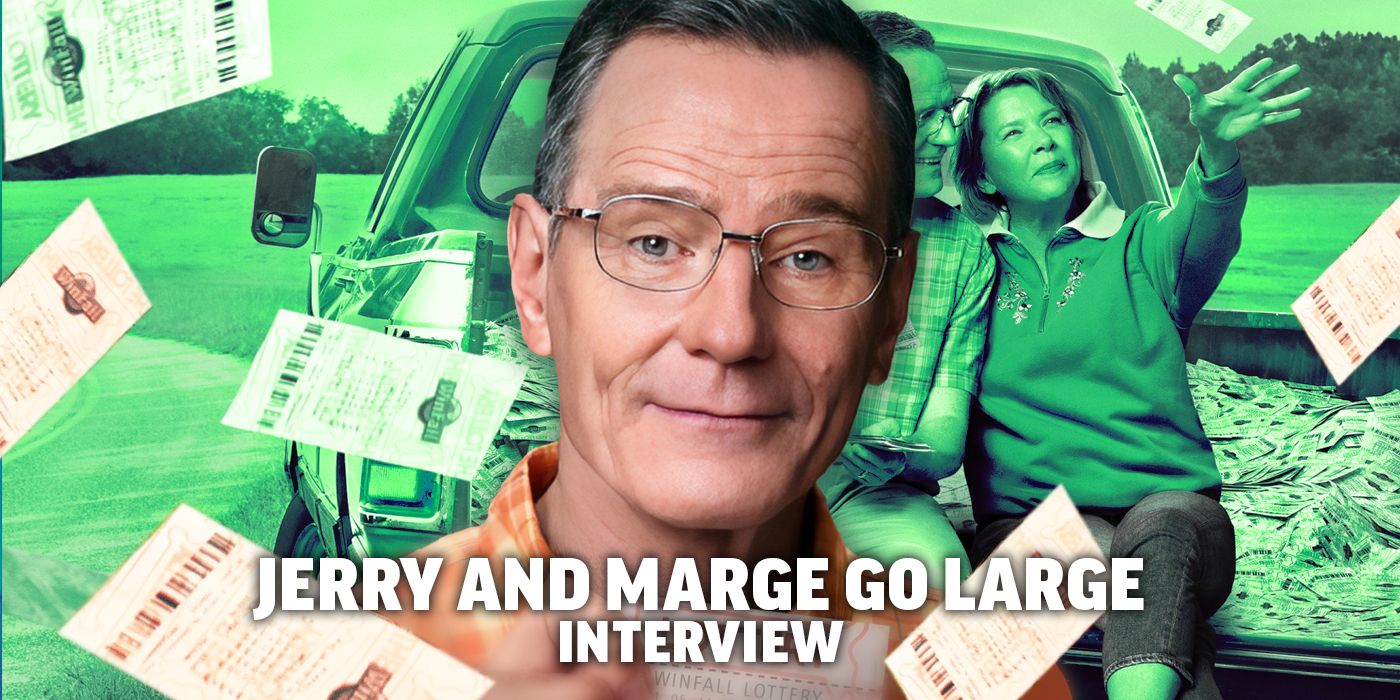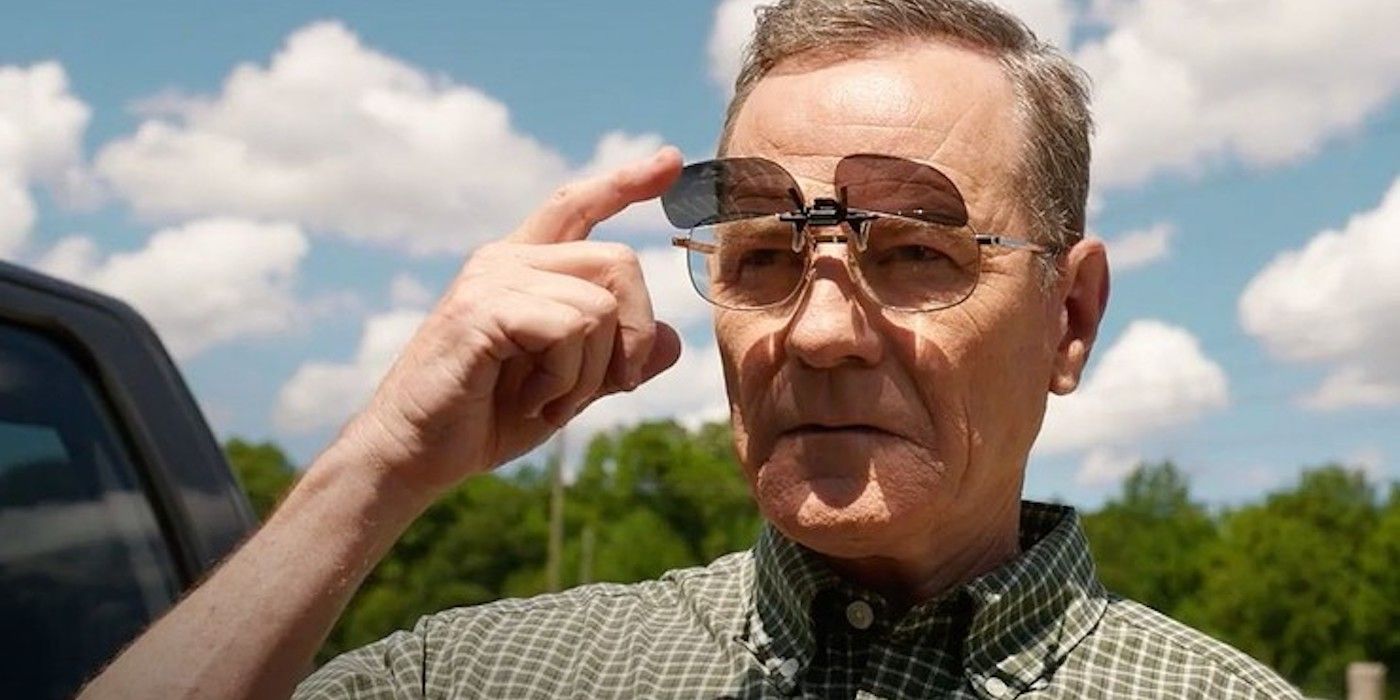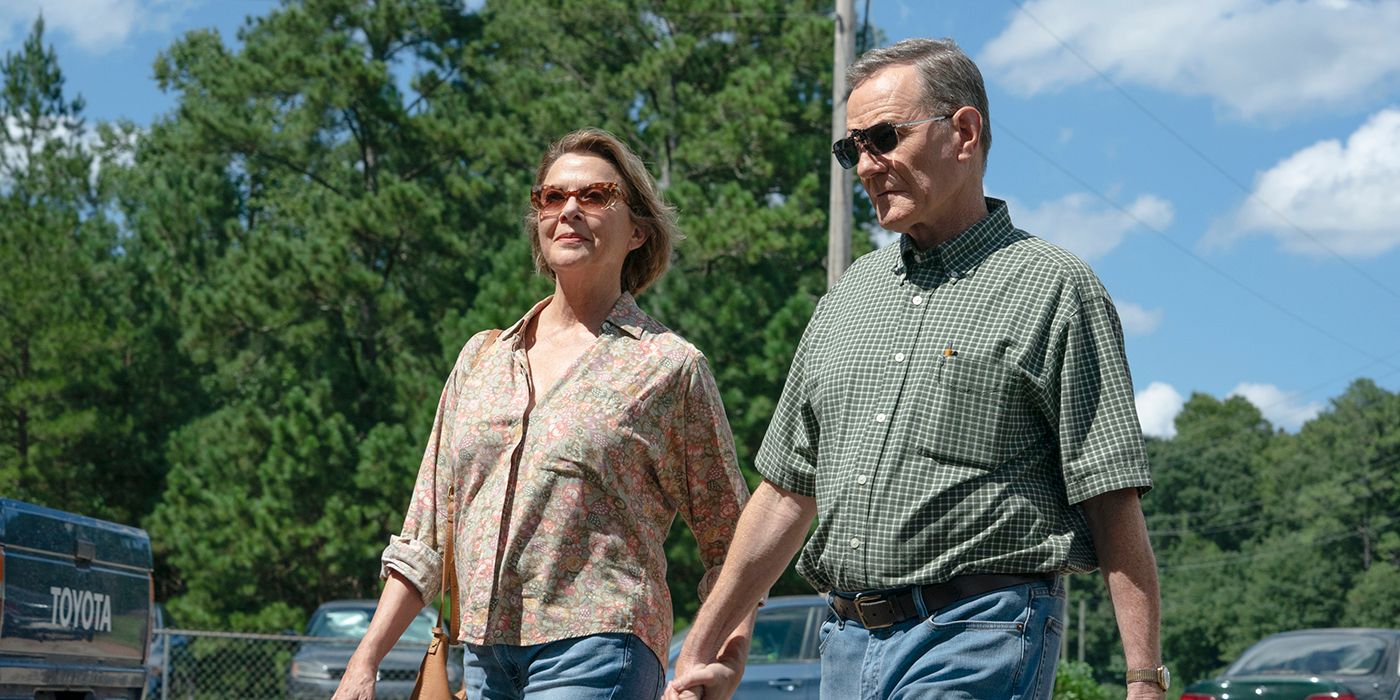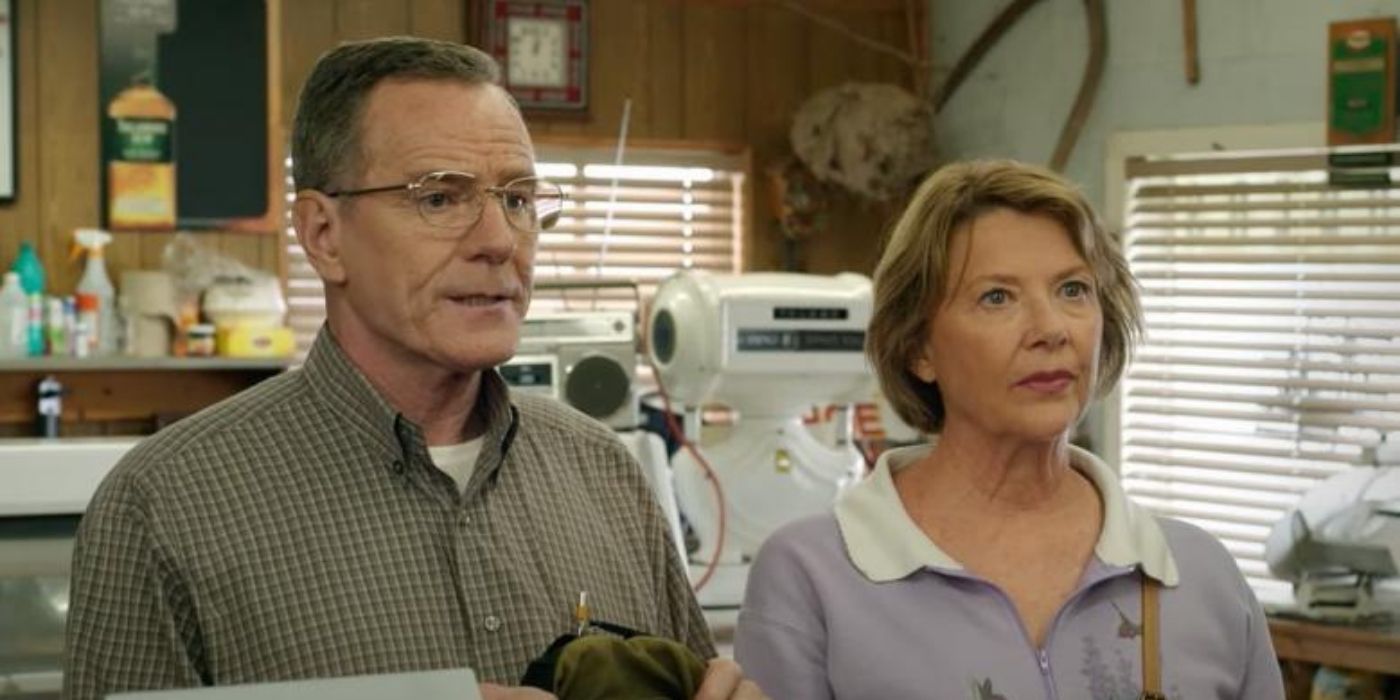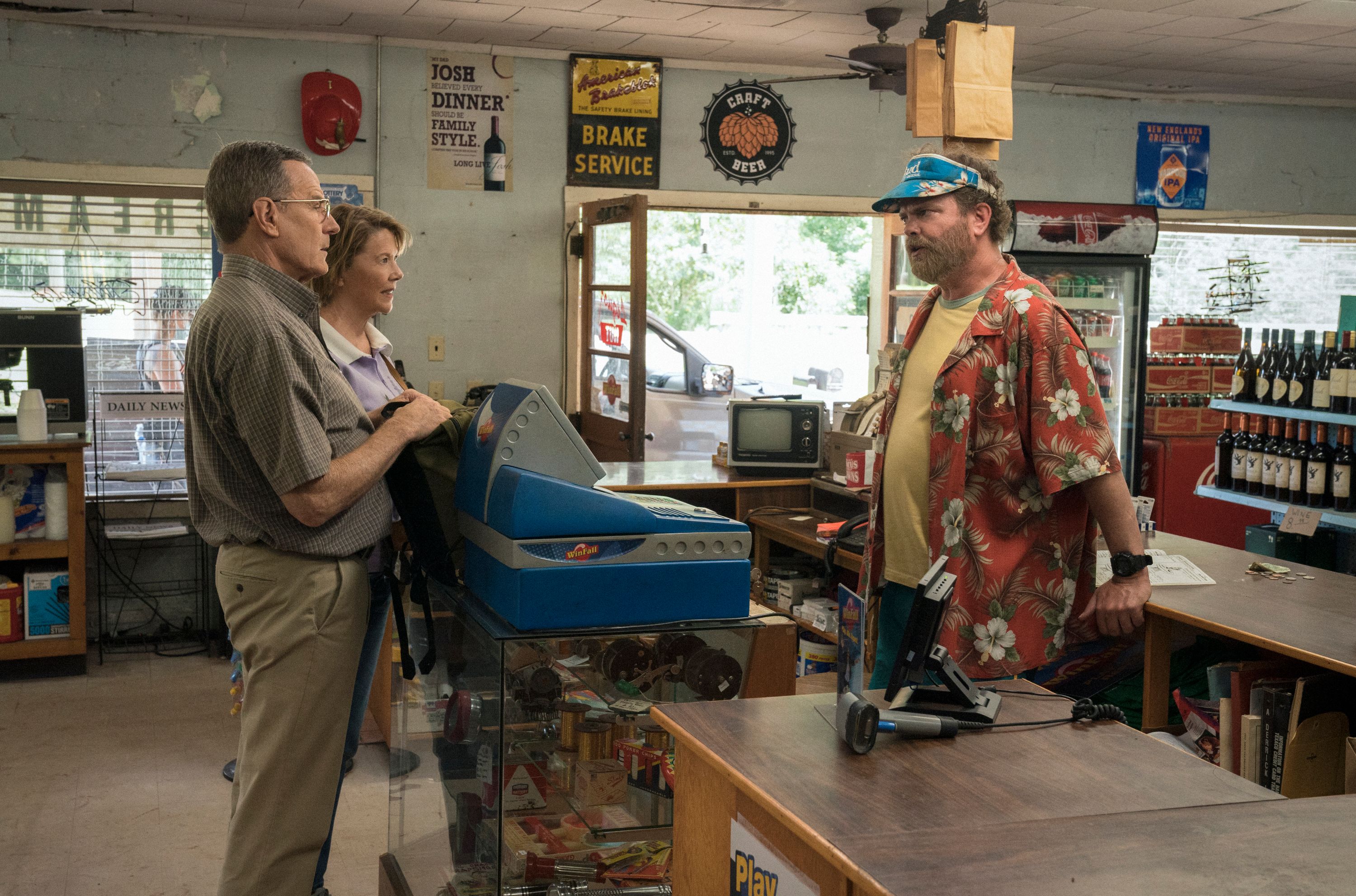This summer, Academy Award-nominees Bryan Cranston and Annette Bening portrayed real-life couple Jerry and Marge Semblee in David Frankel’s charming feature adaptation Jerry & Marge Go Large, which is now available on Blu-ray. In this feel-good movie that's based on a true story, the married couple decides to take advantage of Jerry’s penchant for mathematics and puzzles to successfully hack the Michigan and Massachusetts Lotteries.
During his interview with Collider’s Steve Weintraub, Cranston shares why he chose to do Jerry & Marge, his experience working with directors Wes Anderson and Andrew Stanton, and the importance of capturing the essence of nonfictional characters, while still taking some creative liberties. He also bemoans box office reports versus film critics’ “artistic impressions,” denies allegations that he is a huge baseball memorabilia collector, and discusses prepping mentally for difficult scenes.
COLLIDER: I actually want to start with, you did a video for Andrew Stanton for the panel that we did at Comic-Con. You sent in a little thing and I just wanted to say thank you.
BRYAN CRANSTON: My pleasure. I love Andrew. He's great guy and a really terrific director. I had a really good time on John Carter.
You know what? That would be a good study. When you look at all the successful films, they go, “Oh, yeah, look at all these wonderful films that did incredibly well.” Go back and look at films that did not do well at the box office and say, “Why? What missed? Where did it miss? Is it the story, is it marketing, is it-?”
It's interesting you say that because I've had this conversation with people specifically about John Carter. The movie made actually almost $300 million globally, but the problem is that the film costs so much money to make that it was not profitable, but I've heard people call that movie a bomb and I'm like, It made almost $300 million. That's not a bomb. It just didn't make enough money.
CRANSTON: It gets that label and then you can't shake the label.
Yeah, it's very frustrating. I really enjoyed Andrew's work on that, but anyway.
CRANSTON: I'll tell you one more thing that's frustrating to me. When I was young, there used to be really good film critics to come on the air during the news and to tell you, artistically, what they responded to, what they recommend you go see. A tiny little art house movie or a big budget movie, whatever, and somewhere in between. They gave you their artistic impression with complete relativity and you then made your decision. Now they fired all those people and what they have instead are the news readers, the anchors, reading what the box office successes were for the weekend. As if the five top box office numbers, that's a recommendation to go see that movie because it made that much money.
I do think there are some news people, some of the people in LA and I know some reporters around the country, but it is not a position that is as the way it was when I was younger and you were younger.
CRANSTON: Yeah, it's sad.
I totally agree. I have to ask you, I read that you used to collect baseball memorabilia and I wanted to know, do you still do that?
CRANSTON: I never really did. I'm a huge baseball fan and I had a big birthday, and a lot of the presents that came on this birthday were memorabilia. So I was given these gifts, and it's like baseball cards, and baseballs, and plaques, and pictures and things like that, and baseball bats and this. It's like, “Oh my,” I have all these things and I put them on display in my office, and I did an interview, and I made a mistake of having the interviewer come up to my office. He looked around, and he saw the baseball memorabilia, and he said, “You're a collector.” I said, “Actually, no, I'm really not. I just got these as a present,” but he forgot to put that part in and said “He's a major baseball collector.”
I would get hit up by people saying, “Hey, I've got a Hank Greenberg card from 1924,” and I go, “I'm really not a collector.” I'm not a collector of anything really. I don't particularly like too many things that take up my shelves. I know you do. Look at you.
I was going to say, don't look behind me, please.
CRANSTON: You've got all kinds of things. Do you have my doll back there, the Walter White Doll or anything?
I don't because I don't think they've made a good enough version of it that I want to have it behind me.
CRANSTON: How dare you.
I'm being honest with you. I think that if Sideshow Collectibles, Hot Toys, they make a super great one… listen, I love that show, and I love your performance on that show and I would be happy to add it behind me.
CRANSTON: That is fine, thank you.
I definitely have to ask you, I know you were offered a bunch of scripts and projects. What was it about Jerry & Marge that said, I need to do this?
CRANSTON: It was during lockdown, during the COVID lockdown, and several months into it I was feeling restricted and disconnected from people. Because of that, it created sort of an antisocial environment. I thought, “I want something to make me feel better,” and I read this script and I put it aside. I go, “That's really cute. I really like that and it's a true story, okay.”
I read another one, I go, “I don't know about that. It's kind of dark.” I look back at Jerry & Marge, and I kept looking back at Jerry & Marge, and that's always a good sign. If I keep thinking about something, it's starting to enter my subconscious. I just thought, why not do something that lifts the spirits of people? To this day I say, Jerry & Marge Go Large will not change your life, but it can change your day and there's value to that.
Yeah, when I watched it, it was what I wanted. Great actors, it was a feel-good movie and I really enjoyed that. Exactly what you're saying.
CRANSTON: Yeah, thanks Steve.
You are a tremendous actor. When you are playing someone who's real, do you feel more pressure on yourself to try to bring that person to life, or do you accept that this is a movie where, “I have freedom to do what I want?”
CRANSTON: With nonfictional characters, there comes an additional responsibility. Absolutely I do. Whether I played Dalton Trumbo or Lyndon Johnson, those family members are still alive. These men did something of note and I want their friends and family who remember them to say, “Oh, he got him. He got him, he got the essence of him.”
I'm playing Jerry Selbee, and he's not famous, and I told him, I'm not doing an impersonation. I might even change your personality a little bit, and I did. He is a very gregarious, fun guy. He'll speak to anyone, he's very outgoing. I thought, I think my Jerry Selbee would be better for the movie, in our little hour and a half, to make him a little more reticent, a little more softer and not as outgoing. I took that tone and Annette [Bening] took a tone of a little more assertiveness and I thought, “Oh, that's good.” We talked about it and I think it blended, and complimented, each other.
Absolutely. Listen, I always think that the real story's there, the movie, it needs to be a movie. I think sometimes people forget that. I'm a huge Wes Anderson fan and I loved your work in Isle of Dogs.
CRANSTON: Thank you.
It was a voiceover work. When you were voicing it, did you think to yourself, “Maybe I'll finally get the call for live action?”
CRANSTON: I did. You're absolutely right Steve. There's no question about it. When you work for an author like that, it is a big trust exercise. We did this movie coming up, Asteroid City, in Spain, and it wasn't easy work. Working for Wes is not easy. It's very detailed, and very specific, so you really have to really concentrate hard. What offsets that is the congeniality, and the togetherness, of the experience.
We're all at this five-star hotel in Spain and every single night is a banquet. Every single night you are exchanging thoughts and laughter and someone brings a guitar and you're singing and you're talking. It's just so familial. It's like fulfilling an actor dream camp. It was a really, really great experience albeit, again, the work was very specific and very difficult.
When he finally called you, or texted you, or wherever you got the information, were you like, “Finally?”
CRANSTON: Yeah, and when someone like that calls, I did the same thing with Tom Hanks. When he calls for something, it's like, “Yes. And what am I doing?” I say to Wes Anderson, “Yes, what is it you want me to do?” That's the way it is for all the actors. We kind of show up and say, “How do you want to do this?”
Wes makes an animatic and voices all the characters in the animatic, what he calls the cartoon. So we watch it on a laptop. We watch the entire movie that he voices on a laptop and it's like, “Oh, got it. I see where you're going. I see what you're doing, and let me see if I can hit that target, the character you've already created. Let me see if I can point my arrow toward it and hit it bullseye.”
Like I said at the beginning, I really am a big fan of your work. If you have a big emotional scene on a Monday morning, something that you know will challenge you, how early on are you actually preparing for that moment? If it's a day you have circled in your calendar, you know it's a tough day, is it weeks out you're thinking about it? Could you maybe just tell me how you like to prep?
CRANSTON: Well, that's true how you were talking about it. You look ahead. When you're doing a movie, you look ahead and you kind of gauge where your tough days are, where your easy days are. You can monitor your energy output and you can also start to lean in and focus on those days and how you hope it will turn. It depends on the complexity of the scene. It depends how long you have to really focus on it.
Sometimes you get a character and you go, “I know exactly what I want to do,” and you lean into that. Others, it's like it's still kind of outside of me and I'm not quite sure until I'm on the set and working with the other actors to figure out how it's going to come. You just have to give into that ambiguity, and that unknowingness, and trust that it will come because your interest and desire, and your experience and talent is there, and you're going to pull it out. You'll get it, you'll get to it, but you can't always design how it's going to come.
It's never really a point A to point B kind of journey. It takes its own tour sometime and you're trying to figure out how. “Oh, we're on track. Jesus, that was interesting.” Then you get off track, and you get back on track, and it's bits and pieces, and they will end up cutting the parts out that were off track and you're like, “Oh, got it. Oh, that works well.”
Jerry & Marge Go Large arrives on Blu-rayNovember 15 and is streaming on Paramount+. You can watch the Jerry & Marge Go Large trailer below.

